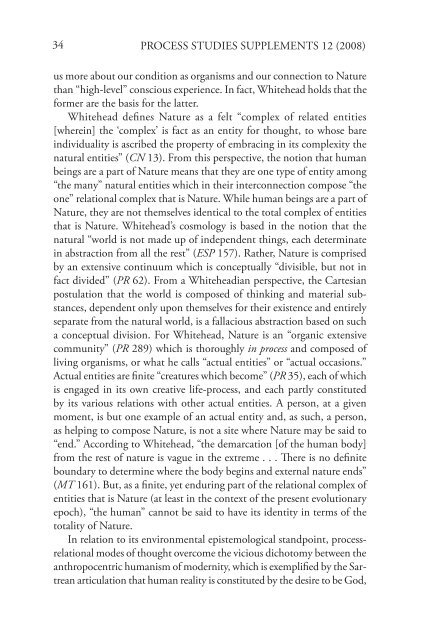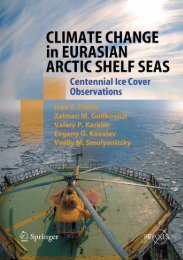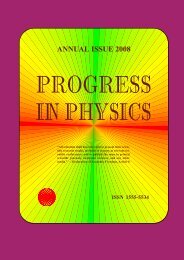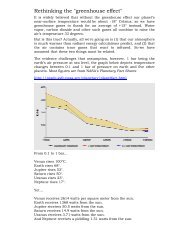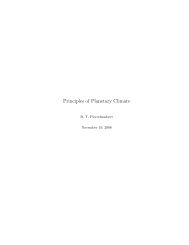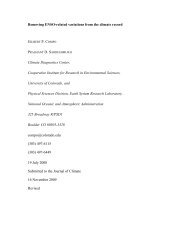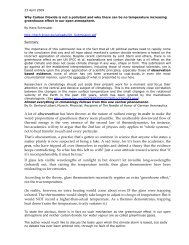Process Studies Supplement Overcoming Anthropocentric ... - Here
Process Studies Supplement Overcoming Anthropocentric ... - Here
Process Studies Supplement Overcoming Anthropocentric ... - Here
Create successful ePaper yourself
Turn your PDF publications into a flip-book with our unique Google optimized e-Paper software.
34<br />
PROCESS STUDIES SUPPLEMENTS 12 (2008)<br />
us more about our condition as organisms and our connection to Nature<br />
than “high-level” conscious experience. In fact, Whitehead holds that the<br />
former are the basis for the latter.<br />
Whitehead defines Nature as a felt “complex of related entities<br />
[wherein] the ‘complex’ is fact as an entity for thought, to whose bare<br />
individuality is ascribed the property of embracing in its complexity the<br />
natural entities” (CN 13). From this perspective, the notion that human<br />
beings are a part of Nature means that they are one type of entity among<br />
“the many” natural entities which in their interconnection compose “the<br />
one” relational complex that is Nature. While human beings are a part of<br />
Nature, they are not themselves identical to the total complex of entities<br />
that is Nature. Whitehead’s cosmology is based in the notion that the<br />
natural “world is not made up of independent things, each determinate<br />
in abstraction from all the rest” (ESP 157). Rather, Nature is comprised<br />
by an extensive continuum which is conceptually “divisible, but not in<br />
fact divided” (PR 62). From a Whiteheadian perspective, the Cartesian<br />
postulation that the world is composed of thinking and material substances,<br />
dependent only upon themselves for their existence and entirely<br />
separate from the natural world, is a fallacious abstraction based on such<br />
a conceptual division. For Whitehead, Nature is an “organic extensive<br />
community” (PR 289) which is thoroughly in process and composed of<br />
living organisms, or what he calls “actual entities” or “actual occasions.”<br />
Actual entities are finite “creatures which become” (PR 35), each of which<br />
is engaged in its own creative life-process, and each partly constituted<br />
by its various relations with other actual entities. A person, at a given<br />
moment, is but one example of an actual entity and, as such, a person,<br />
as helping to compose Nature, is not a site where Nature may be said to<br />
“end.” According to Whitehead, “the demarcation [of the human body]<br />
from the rest of nature is vague in the extreme . . . There is no definite<br />
boundary to determine where the body begins and external nature ends”<br />
(MT 161). But, as a finite, yet enduring part of the relational complex of<br />
entities that is Nature (at least in the context of the present evolutionary<br />
epoch), “the human” cannot be said to have its identity in terms of the<br />
totality of Nature.<br />
In relation to its environmental epistemological standpoint, processrelational<br />
modes of thought overcome the vicious dichotomy between the<br />
anthropocentric humanism of modernity, which is exemplified by the Sartrean<br />
articulation that human reality is constituted by the desire to be God,


